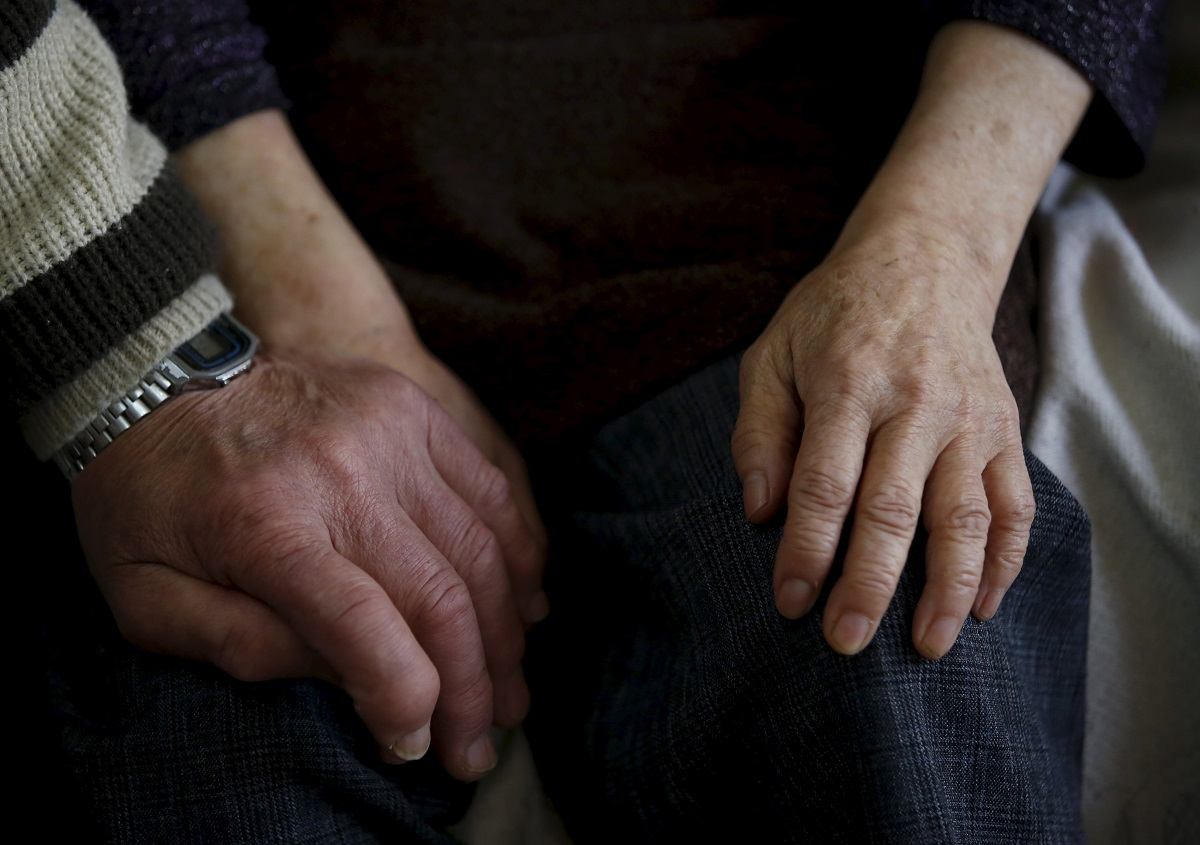
72-year-old Kanemasa Ito (L) puts a GPS tracking necklace on his 68-year-old wife Kimiko who was diagnosed with dementia 11 years ago.
12:39 JST, January 18, 2023
Older people who are socially isolated face a 28 percent greater chance of developing dementia than do their counterparts who are not socially isolated, according to a study by Johns Hopkins researchers published in the Journal of the American Geriatrics Society.
Social isolation is generally defined as having few social relationships and few people to interact with regularly.
The study involved 5,022 U.S. residents 65 and older (with an average age of 76) who were dementia-free at the start of the study and were not living in a nursing home, residential care facility or other institution. About 23 percent were considered socially isolated, but most participants (77 percent) were not.
During a nine-year span, all the participants were tracked and periodically given cognitive tests. In that time, about 26 percent of those who were socially isolated developed dementia, compared with about 20 percent of those who were not socially isolated.
The study found no significant differences by race or ethnicity. It did not focus on why or how social isolation increased the prevalence of dementia, but prolonged social isolation has been linked to proven physical and mental health risk factors for dementia, including hypertension, heart disease, depression and reduced cognitive activity, according to the National Institute on Aging.
Also, people who are socially isolated may be less likely to take advantage of health services available to older Americans, such as the Eldercare Locator – an Administration on Aging program that can connect older adults and their families to available services. The Centers for Disease Control and Prevention says social isolation affects roughly a fourth of U.S. adults 65 and older. About 6 million Americans have the most common type of dementia, Alzheimer’s disease, according to the CDC.
"News Services" POPULAR ARTICLE
-

After Largely Ignoring Suffering in Gaza, Israeli Media Start to Report on Palestinian Hardships
-

V of K-Pop Sensation BTS Thrills Fans with First Pitch at Dodgers Game and Meets Shohei Ohtani
-

Mercedes-Benz Offloads Nissan Stake for $325 Million, Source Says
-

Japan Accelerates Missile Deployment Amid Rising Regional Tensions
-

Japan’s Nikkei Stock Average Hits Record High, Yen Falls as PM Ishiba Resigns (UPDATE 1)
JN ACCESS RANKING
-

Japan’s Seafood Exports Still Hurting in Wake of Fukushima Incident, but Hopes Rising for Chinese Market
-

Japan’s Core Inflation Slows in July, Stays above BOJ Target
-

Japan in Prime Spot for Total Lunar Eclipse Early Monday Morning, 1st Visible from Country in Almost 3 Years
-

Japan, India Aim for More Than 500,000 People-to People Exchanges over Next 5 Years
-

S. Korea’s Lee Eager to Enhance Ties with Japan More



















